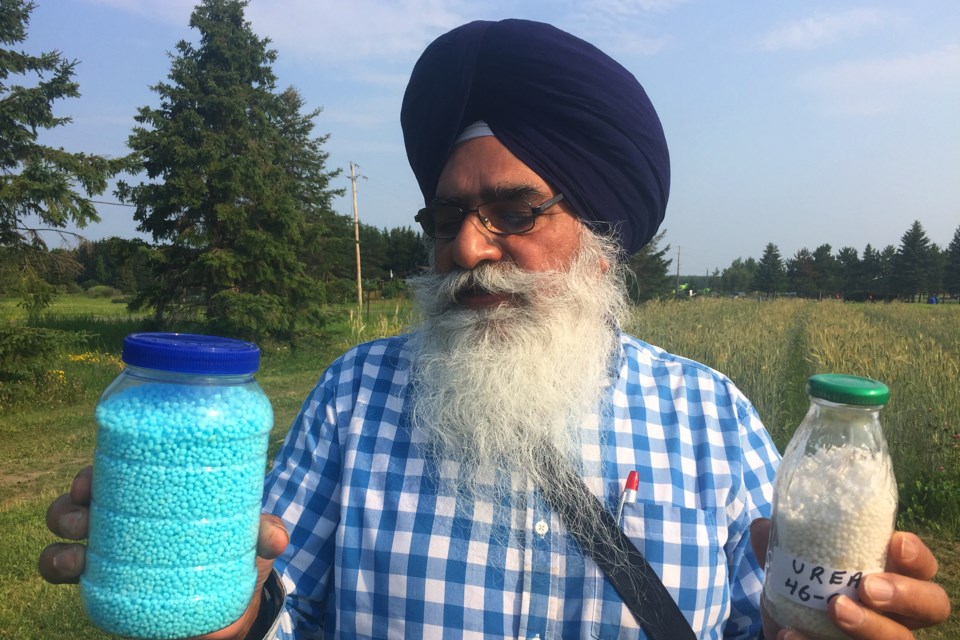THUNDER BAY - Knowing what and how to grow on northern Ontario soil has been passed down from generations of farmers, but that doesn’t mean those farmers can’t use some help.
On Wednesday, the Lakehead University Agricultural Research Station hosted its annual summer tour to show area farmers research being conducted, methods to some of the research, and new crops being grown.
Dr. Tarlok Singh Sahota, director of the Agricultural Research Station recently completed his first full year of work at the station on Little Norway Road.
In 2018, Lakehead University took over the agricultural station and provided Sahota and his students with five years of funding.
In that time, they’ve researched many new crops including two dozen varieties of spring wheat, and different types of soybean, canola, and lentils.
Three things are very important when it comes to agricultural production, Sahota explained.
“One is genetics which we can change and select, one is management... like fertilization, and there is weather, which we can’t control. But these first two factors are very important for quality production.”
Sahota says this will help farmers in the region know more about their crops and how they behave.
This spring, Lakehead University’s agricultural Research Station initiated a study on Urea Super Granules on canola, which responds to high amounts of nitrogen. They are the first researchers in Ontario to test the product on canola.
“Our farmers are very receptive to the new technology. They have been listening to us, watching us, and they have adopted a variety of new practices on farms,” Sahota said.
The station is involved in a lentil project this year, which involves growing lentils on four different area farms, and analyzing the soils, composition, and crop yield.
Andrew Dean, vice president of research and innovation at Lakehead University, says the farming community has been receptive to the new relationship with the research station.
“I think they're pleased that we’re continuing to have a strong emphasis on extension,” Dean said. “Farmers to tell us the kind of thing to increase the productivity and efficiency of their farms, but at the same time to introduce new crops to see how things grow, and then also getting out onto those farms and trying some new things.”
“We also introduced a program at the university where we were able to give research grants to research scientists at this station here.”
All six of the research interns at Lakehead’s Agricultural Station are international students from India.
“Lakehead University has become a very international university,” Dean said.
“As we go out in the world, we learn that agricultural research is very important to a lot of countries. Many of the students who want to come to Canada and do their studies also want to make sure it’s relevant to where they came from.
“This is providing a wonderful opportunity for students in those areas to actually get some hands-on experience.”
